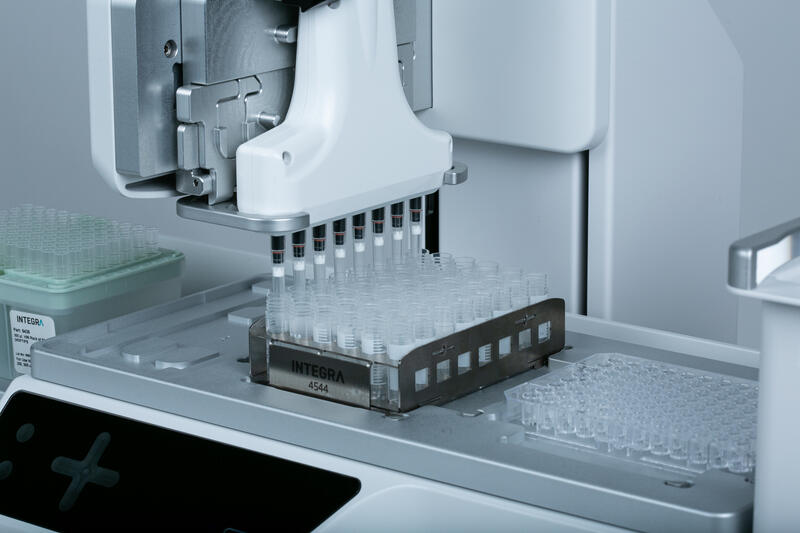INTEGRA Biosciences’ products offer flexibility in the post-pandemic era

From INTEGRA Biosciences Mar 23 2023
Many laboratories purchased pipetting solutions from INTEGRA Biosciences during the COVID-19 pandemic to help them cope with the high numbers of samples they were receiving every day for PCR testing. Now the pandemic has been brought somewhat under control, labs are once again able to concentrate their efforts on other vital work, but what has become of those pipetting platforms and devices?
A recent survey conducted by INTEGRA provides insights into how these systems are finding new uses now that they are no longer needed for COVID-19 testing.
Labs turned to INTEGRA pipetting systems – from VOYAGER adjustable tip spacing pipettes and VIAFLO lightweight electronic pipettes to VIAFLO 96 and VIAFLO 384 handheld electronic pipettes, MINI 96 portable electronic pipettes and ASSIST PLUS pipetting robots – to automate and speed up their PCR workflows, thanks to the combination of ease of use, intuitive operation, and straightforward programming. Related StoriesUniversity adopts INTEGRA pipettes for prestigious international competitionINTEGRA pipettes simplify PCR testing for COVID-19INTEGRA Biosciences furthers scientific education with festive donation
These same features are now allowing the instruments to be used in a range of new non-COVID applications, including DNA sequencing, antibiotic resistance investigations, women’s health testing, and the development of novel assays for high-prevalence diseases like monkeypox and STIs.
75% of the labs participating in the survey purchased an ASSIST PLUS. They chose this pipetting robot for greater flexibility through the automation of multichannel pipettes. The newly launched D-ONE single-channel pipetting module also allows the platform to perform tasks requiring only a single channel, effectively processing tedious tasks, such as serial dilutions, sample normalization, hit picking, or pipetting of complex plate layouts with minimal hands-on time.
The main benefit of automation with the ASSIST PLUS and the VOYAGER cited in the survey was the ability to reduce errors for greater consistency, accuracy, and reproducibility of results. In addition, automating laborious and time-consuming liquid transfer steps means that fewer staff are needed to process more specimens, enhancing lab throughput.
Based on these positive experiences, 92% of customers plan to use their pipetting robot for additional applications in the years to come – including allergy and infectious disease testing, pharmacogenomics, targeted genome sequencing and research into antimicrobial resistance – enhancing their workflows and ensuring they are adaptable to the diagnostic needs of the future.
Visit the INTEGRA Biosciences website to learn more.
